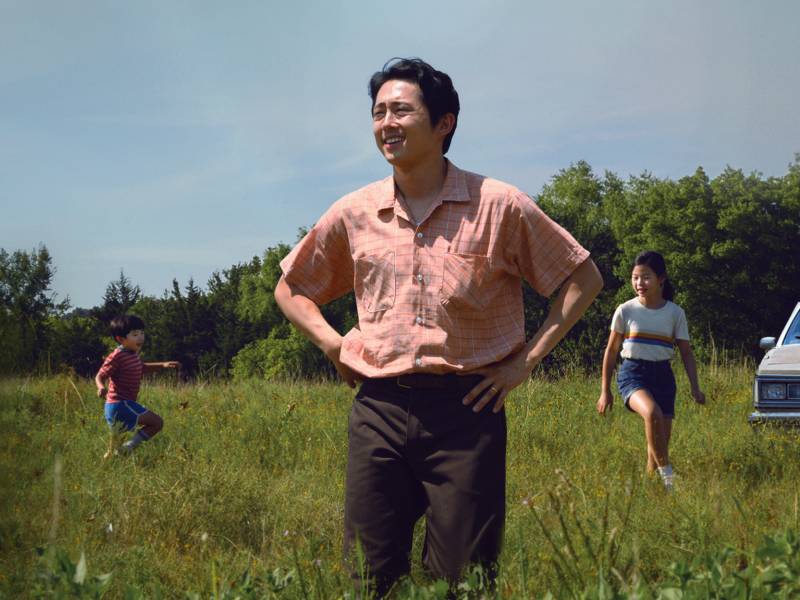The history of film is inseparable from immigration. Newcomers to America didn’t merely pack the nickelodeons and movie palaces, they invented Hollywood. Ever since silent film days, filmmakers have sought to chronicle our vast immigrant experience—from the Sicilian Corleones gaining power through crime in The Godfather to Pakistani-born Kumail Nanjiani alienating his Muslim parents by falling for a white American girl in The Big Sick.
The travails of immigrant life take a quietly beguiling form in Minari, a semi-autobiographical film by Lee Isaac Chung that brims with humor, humanity and hope. Showing us characters new to American screens, the story centers on a South Korean family named Yi who hope to make a go of farming in rural Arkansas during the Reagan years. Minari takes its title from the name of a spicy Asian plant that’s known for its hardiness and ability to grow seemingly anywhere. The question is, will the same prove true of the Yi family?
The action begins with the four of them arriving in the Ozarks from California. The new farm’s dark soil thrills the father, Jacob (Steven Yeun) who plans to grow Korean vegetables to sell in the city. In contrast, his wife Monica (Yeri Han) is aghast to be living in an unalluring mobile home out in the boonies. Somewhere in the middle are their kids—impish 7-year David (Alan Kim), who suffers from a heart condition, and his older sister, Anne (Noel Kate Cho), who’s stuck being the responsible one.
Farming proves tricky for Jacob who takes on a friendly, war-damaged farmhand (Will Patton), yet makes a mess of the irrigation system. Sensing Monica’s loneliness, he sends to Korea for her mother, played by the fantastically good Yuh-jung Youn, whose sly, foul-mouthed brio gives the house—and the whole movie—a happy boost, even if young David thinks she smells. Watching this freewheeling grandma win over her equally unruly grandson is one of the film’s many pleasures.

9(MDAxOTAwOTE4MDEyMTkxMDAzNjczZDljZA004))

